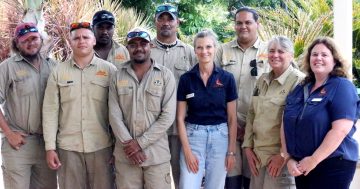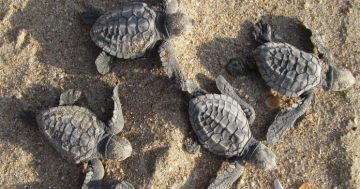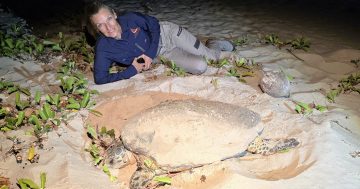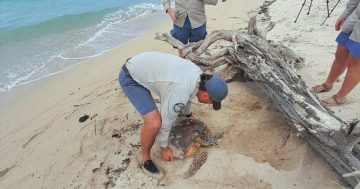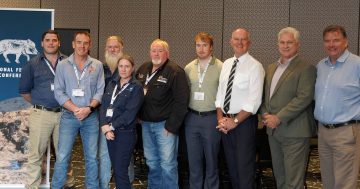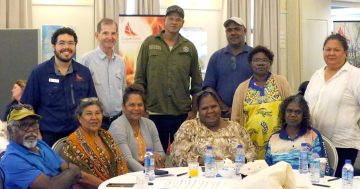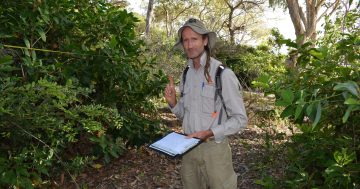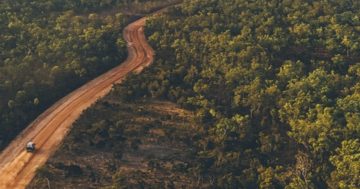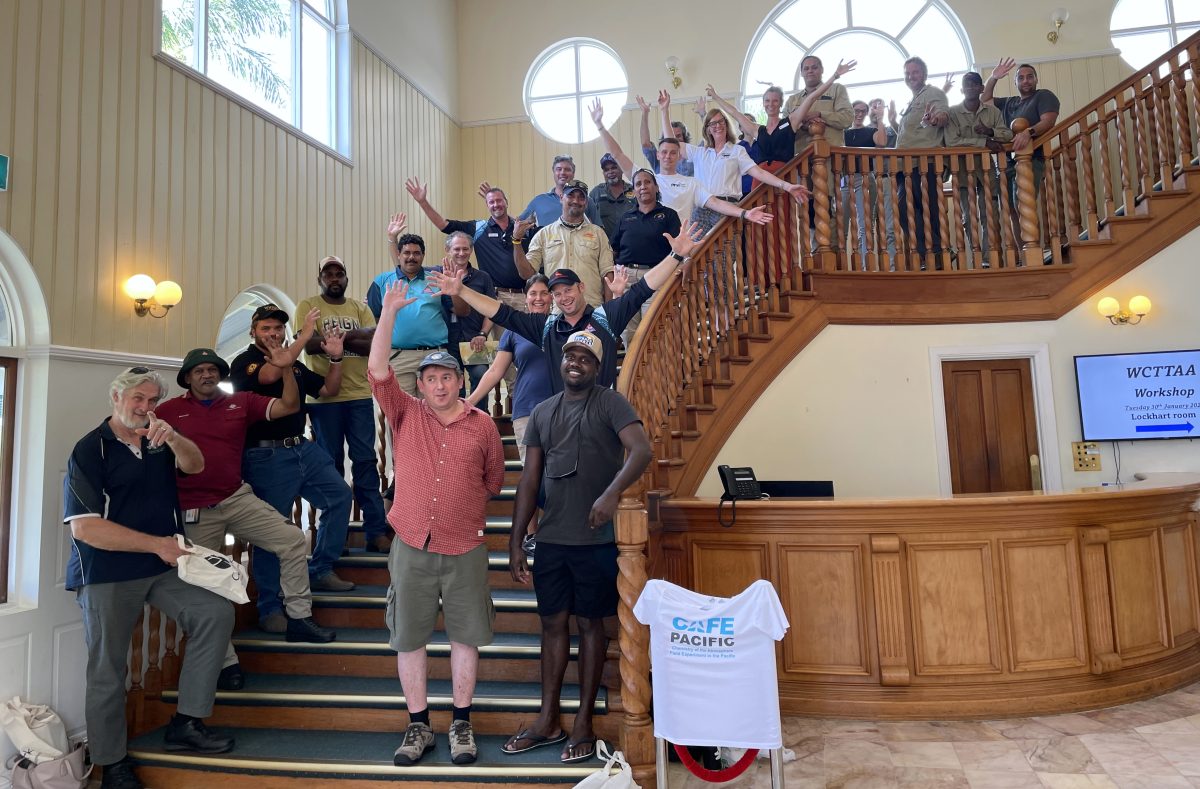
WCTTAA members celebrate a successful 2023 protecting a significant number of turtle nests at a forum in Cairns on 30 January, 2024. Photo: Supplied.
More than 5,000 turtle nests were monitored along the western Cape York Peninsula during the 2023 season, with only 11-12 per cent of them damaged by predators.
This result highlighted the positive impact the Western Cape Turtle Threat Abatement Alliance (WCTTAA) has had over the past 10 years in reducing nest predation from over 90 per cent, to as low as 10 per cent for various turtle species.
At a forum held in Cairns on 30 January, 36 attendees celebrated the 2023 result, discussed key issues and prepared for the 2024 turtle season.
WCTTAA coordinator Dr Manuela Fischer said 2023 was a good year for the turtles.
“Apart from keeping turtle nest predation to a sustainable number of under 30 per cent, and on some beaches under 10 per cent, we set up a new data collection system, NESTOR, to improve the accuracy of nest monitoring and resolved the problem of losing data,” she said.
“We also trialled a method of checking and reducing nest temperature, which because of climate change, has been increasing.
“From the preliminary findings, we are seeing amazing results, so we will be conducting the official study this year on a broader scale.”
Dr Fischer announced WCTTAA had secured funding for the next two years, and there was more to come to protect turtle nests in 2024.
“We have a really busy year ahead,” she said.
“Funding from the State and Federal Governments, under the Nest to Ocean Program, is now locked in for another two years which is excellent news.”
To protect the nests, rangers use purpose-built, rust-proof cages, which are installed over them to prevent feral animals from attacking the eggs.
The funding will assist in a new welding course organised for the rangers, so they can build their own cages in the future.
“This is a really important development for the Alliance members,” Dr Fischer explained.
“These cages are pivotal in protecting nests and hatchlings from predators, which dig up the eggs.
“Building them on Country will upskill the ranger capacity and save time and money.”
The rangers also remove marine debris, monitor the beaches and carry out pre-season culling of feral animals, which the funding will also go towards.
“[It] will help with feral pig culling before the nesting season begins, which unfortunately didn’t happen in some areas last year,” Dr Fischer said.
“It will also help fund an upgrade of equipment for the ranger camps, so they can effectively manage the seven census beaches, covering 150 kilometres of coastline.”


